April 2023 #InsightSustainability month
April was Insight Sustainability month and we have been focusing on the breath and depth of research at the Centre in this area. We started the month with a piece from Dr Kevin McGuiness on how machine learning can help us achieve net zero. We look back on the full collection of stories below.

Dr Kevin McGuinness, Funded Investigator, Insight SFI Research Centre for Data Analytics, DCU on harnessing machine learning to meet the net zero challenge
‘A quantum leap in climate action’ is required by ‘every country’ according to UN Secretary General Antonio Guterres, speaking in response to the most recent Intergovernmental Panel on Climate Change.
The big ticket action is meeting the deadline to get to global net zero by 2050. However, under that grand challenge are many micro-actions that require immediate and concentrated effort. Machine learning and AI has a critical role to playIreland has no rain forest but we have an untapped carbon sink that is even more effective at pulling heat-generating carbon out of the air: peat bogs. Finding them, assessing them, rewetting them; this is a job that has recently been made much easier by AI.
Now that Bord na Mona is stepping down peat production we need to rapidly assess our peat ecosystems so that they can be commandeered into the global effort to pull carbon emissions out of the atmosphere. The good news is we are already doing the work through the EPA-funded Smart Bog project, which is a model for many other forms of AI-enabled environmental monitoring that could fast track Ireland to a carbon neutral future.
Machine learning is in the doghouse – most media discussion of AI’s ability to learn from humans has recently focused on its ability to plagiarise artwork and return misleading answers to silly questions. However, machine learning when applied to environmental monitoring has magic bullet potential. The scientific fieldwork, spanning decades, that has led to the insights offered by the IPCC in its latest report has required massive investment and in many cases has involved slow and arduous work by researchers on the ground from pole to pole.
In Ireland today we are capturing data on the health and potential of boglands using drones that take enough photographs to train a machine learning system to spot, identify and map key areas for rewetting and carbon capture in Ireland. Our AI is currently identifying historic bog drains which can then be sealed up, rebooting the process of carbon capture by these ancient landscapes.
We are creating data visualisations of sites such as Clara Bog and Lullymore so that actions can be implemented quickly and accurately on the ground. In the past, these sites would have to be explored and mapped by individuals physically exploring the terrain. Sealing these drains and rewetting these bogs will have the added benefit of supporting the unique biodiversity of the peatlands – another layer of climate action that AI and machine learning is rapidly getting to grips with.
Machine learning in the form the iHabimap project is teaching AI to recognise and assess terrains and ecosystems from the air, giving scope for the kinds of climate early warning systems that the IPCC has called for in its latest report. Drone surveys that can flag up changes in endangered or protected ecosystems give us the tools we need to act before irreversible habitat loss.
Ireland is in a great position to share data and tech with others in the form of international collaborations, especially with Europe. We have a well developed machine learning research ecosystem here that is already feeding into wider climate action efforts across the bloc. Sensors in bodies of water across Spain, France and Finland are feeding data back to our labs in Dublin as part of the Forewarn project – a machine learning tool to help identify and track Contaminants of Emerging Concern (CECs) in our water systems; viruses, antibiotics and antibiotic resistant pathogens. The AI can spot danger faster than we can, thanks to the deluge of data that these sensors are providing as training material.
Not alone does the AI give us a view of how things are, but the data modelling it enables gives us the chance to test theories – what happens to a waterborne pathogen if the temperature rises by 1% in a region? These are exactly the kinds of intelligence we need to take on the on the net zero challenge.
Insight Sustainability: Artist in Residence Erin Redmond
Insight Sustainability: Mingming Liu teaching Electric Vehicles to learn from each other
Insight Sustainability: Dr Agnieszka Konkolewska writes about grass optimisation
Insight Sustainability: iHabimap stewarding coastal dunes with drone tech
Insight Sustainability: Sensing Air for citizen science
Earth Day: Dr David O’Connor – early warning system to aid those affected by fungal spores
Insight Sustainability – Looking back at public attitudes to wind farms
Insight Sustainability: Chinmaya Kaundanya making eScooters safer and more sustainable

